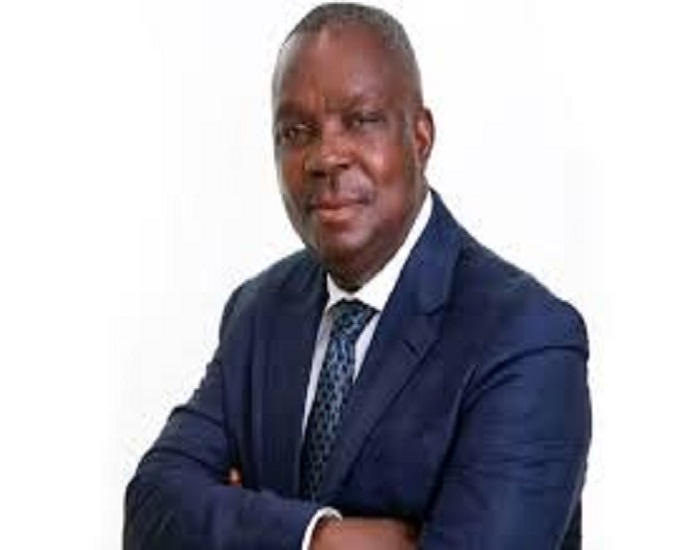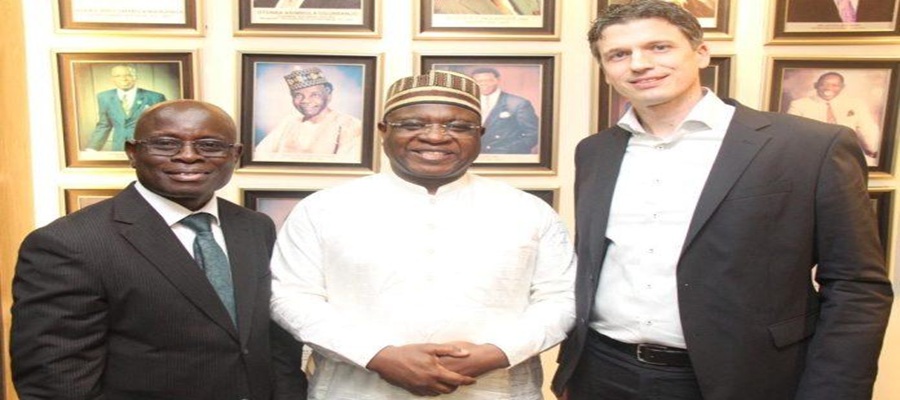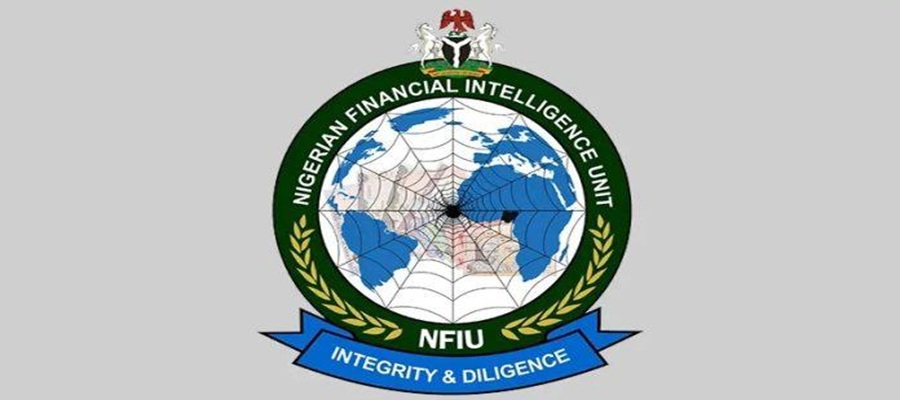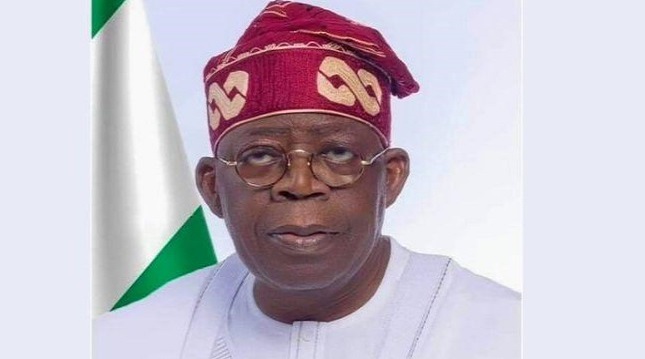News
Why SEPLAT Sacked Avuru as Non-Executive Director

The investing public may not have heard details of the main reasons why Austin Avuru, a former chief executive officer of Seplat Energy Plc who later became a Non-Executive Director was sacked from the board of the energy company.

Austin Avuru
Seplat Energy Plc had on Thursday, December 23 notified the Nigerian Exchange Limited (NGX) that its board has terminated the contract of appointment of Austin Avuru as a Non-Executive Director.
Seplat Energy told the NGX that Avuru’s appointment was terminated on December 22, 2021, “due to breaches of the Company’s corporate governance policies and his fiduciary duties.”
Shortly after SEPLAT hammer fell on Avuru, Perchstone & Graeys, the law firm representing the sacked Non-Executive Director said the allegations levelled against him (Avuru) by Seplat Energy Plc were aimed at “damaging his hard-earned reputation” based on “fictitious allegations” even though the same statement accepted that their client (Austin Avuru) had taken “an ill-advised action”.
The law firm had said this in a statement issued last week and signed by Osaro Eghobamien and Folabi Kuti, its lawyers.
However, the emerging facts seem to bear serious consequences.
Under the Companies and Allied Matters Act, 2020 (CAMA), directors have a duty to exercise their powers and discharge their duties honestly, in good faith and in the best interests of the company. They are also expected to exercise that degree of care, diligence and skill which a reasonably prudent director would exercise in comparable circumstances.
It was learnt that following an enquiry by the Board of Directors of SEPLAT, Avuru had allegedly on December 1, 2020, admitted his conflict of interest in connection with SEPLAT’s business and more particularly its proposed acquisition of some Nigerian assets in which ExxonMobil Corporation has interests.
Avuru also admitted that he had on that date been appointed the Chairman of Chappal Petroleum Development Company Limited (Chappal) and that Chappal had been invited by ExxonMobil Corporation for discussions and possible access to their database in respect of the assets.
Further enquiries by SEPLAT Board revealed that Avuru had already acquired an interest in Chappal over nine months earlier, as far back as March 2020, whilst he was still CEO of Seplat Energy.
More revealing was that the incorporation documents of Chappal as shown at the Corporate Affairs Commission (CAC) revealed that Avuru was and remained both a founding shareholder and director of Chappal, but he failed to disclose his interests in Chappal to the Board in December 2020.
It was further learnt that prior to December 1, 2020, Avuru was much aware, but failed to disclose that Chappal had put in a bid for the said oil and gas assets.
SEPLAT Board after completing the process of its review was satisfied that Avuru failed or refused to disclose a conflict of interest as soon as he acquired an interest in and was appointed a director of Chappal and became aware that Chappal was bidding for the assets.
Avuru knew that SEPLAT which he was a Non-Executive Director was also interested in the assets and he had participated in SEPLAT’s Board discussions relating to SEPLAT’S bid for the assets.
These findings seemed to have affirmed for Board of SEPLAT that Avuru by his actions clearly breached his fiduciary duties and obligations as a director as stipulated under the existing Nigerian Code of Corporate Governance (NCCG) as well as the Securities and Exchange Commission (SEC) Code of Corporate Governance to which Avuru’s appointment was subject.
Avuru as then Non-Executive Director had a duty to notify SEPLAT of his appointment onto the board of Chappal, bearing in mind that he was the CEO of SEPLAT at the time and both companies operate within the same industry.
SEPLAT Energy has a standard listing on the Main Market of the London Stock Exchange (LSE), therefore the company is publicly committed to comply voluntarily with and to abide by the United Kingdom’s Code of Corporate Governance (UK Code).
In accordance with the UK Code provisions, Board directors are not only expected to act in a manner consistent with their duties under company law, but also to uphold the highest standards of integrity.
Prior to appointment into the Board, directors are expected to disclose their significant commitments to the board (together with an indication of the time involved) and additional external appointments are not to be undertaken by directors without prior approval of the board.
By not notifying the SEPLAT board of his appointment to the board of Chappal in March 2020, at a time when Avuru was the CEO of SEPLAT, and not seeking prior approval from the SEPLAT board to take on this new appointment, Avuru acted in a manner that was inconsistent with the provisions of the UK Code and the guidance.
It was further learnt that Avuru also failed to disclose his appointment as a director of Chappal when he accepted the role of a Non-Executive Director (NED) of SEPLAT.
No doubt, prompt and timely disclosure of this board appointment was particularly key in allowing SEPLAT Board to assess the risk of any conflict of interest arising and to take appropriate measures to manage a potential conflict.
Considering the statutory requirement from directors, Avuru had a duty to exercise good faith and a reasonable degree of care and prudence in how Avuru handled the potential conflict.
He failed to exercise his duty of care to SEPLAT by being forthright in disclosing the conflict or likelihood of conflict of interest to SEPLAT, before or promoting/ incorporating Chappal in March 2020.
By failing to promptly disclose his directorship in Chappal, Avuru placed himself in a position where his duties as a director of SEPLAT conflicted with the concurrent opportunities he pursued as founding shareholder and director of Chappal and SEPLAT in a position where it was temporarily unable to take prompt action to manage the potential conflict of interest and to comply with the provisions of CAMA as well as the principles of the NCCG, SEC and UK codes.
For almost one year, Avuru’s attention was said to have been fully with Chappal as against SEPLAT, a situation that was most unfair to SEPLAT, its shareholders and other stakeholders.
News
NGX Unveils Net-Zero Plan for Greener Capital Market

Nigerian Exchange Limited (NGX) has launched the NGX Net-Zero Programme to guide listed companies toward clear carbon reduction pathways and enhanced climate disclosures aligned with global investor standards.

NGX
The high-level launch engaged chief executives of quoted firms alongside development partners including German Investment Corporation KfW, DEG, and African Foresight Group (AFG), NGX’s implementation partner. Issuers and investors discussed financing decarbonisation, sustainability practices, and attracting climate-aligned capital.
NGX Group Chairman Dr Umaru Kwairanga described the initiative as concrete climate action, commending partners for two years of groundwork. “Today marks leadership and decisive action. Climate change has become a core business imperative, with capital markets mobilising capital and setting standards,” Kwairanga said.
He positioned NGX Net-Zero to support emissions measurement, disclosure, capacity building, and sustainable finance access, urging CEOs to embrace it strategically rather than as compliance. Kwairanga reaffirmed NGX’s goal to make Nigeria’s capital market Africa’s green finance hub.
Group CEO Temi Popoola called climate action a business imperative, noting sustainability-embedded firms attract capital, manage risks, and stay competitive. DEG Management Board Member Monika Beck highlighted partnerships scaling impactful, commercially viable climate solutions.
The event closed with a ceremonial gong marking the programme launch and send-off for outgoing DEG Regional Director Bernd Telemann.
News
Nigeria Off EU High-Risk Money Laundering List in Major Financial Win

Nigerian Financial Intelligence Unit (NFIU) has hailed Nigeria’s removal from the European Union’s list of high-risk third countries for Anti-Money Laundering and Countering the Financing of Terrorism (AML/CFT) as a landmark achievement endorsing the nation’s reform efforts.

Nigerian Financial Intelligence Unit (NFIU)
NFIU CEO Hafsat Abubakar Bakari said the delisting, contained in European Commission Delegated Regulation (EU) C (2025) 8460 adopted December 4, 2025 and effective January 29, 2026, affirms sustained AML/CFT and Counter Proliferation Financing (CPF) reforms.
The move follows Nigeria’s exit from the FATF Jurisdictions under Increased Monitoring after addressing strategic deficiencies, alongside Burkina Faso, Mali, Mozambique, South Africa and Tanzania.
Bakari noted the European Commission recognised Nigeria’s strengthened AML/CFT effectiveness, closed technical gaps, and fulfilled FATF Action Plan commitments leading to grey list removal in June and October 2025.
The delisting eliminates enhanced due diligence requirements for EU financial transactions, easing compliance, boosting cross-border flows, and enhancing Nigeria’s appeal for European trade, investment and partnerships.
The NFIU attributed success to President Bola Ahmed Tinubu’s political will and collaboration among National Assembly, law enforcement, regulators, judiciary, private sector and development partners.
The agency reaffirmed commitment to ongoing FATF, GIABA, EU engagement and domestic framework resilience to maintain international confidence in Nigeria’s financial system.
News
FG Directs Banks, Fintechs to Remit VAT on Service Fees

The Federal Government has directed all banks and fintechs to collect and remit 7.5 per cent value-added tax on certain electronic banking services, effective Monday, January 19, 2026, according to an email notice issued by payment platforms.

The VAT will apply to electronic banking charges, including mobile money transfers, USSD transaction fees, and card issuance fees, according to an email notice on Wednesday shared with customers by Moniepoint.
For example, if a bank charges N100 to make a transfer, the 7.5 per cent VAT will be applied to that service fee, not the money being sent.
“From Monday, January 19, 2026, we are required to collect a 7.5 per cent VAT, to be remitted to the Nigerian Revenue Service (formerly known as the Federal Inland Revenue Service).
“VAT will apply to certain banking services that include electronic banking charges such as mobile banking fees (transfers), USSD transaction fees, and card issuance fees,” the email read.
Other operators are expected to issue similar notices to their customers in the coming days. Services that will remain exempt include interest earned on deposits and savings, meaning customers will not pay tax on the returns from their accounts.
The NRS, formerly known as the Federal Inland Revenue Service, has set the deadline to ensure that all commercial banks, microfinance banks, and electronic money operators comply with the collection and remittance requirement.
Moniepoint stressed that this is not a price increase but a statutory obligation. “Moniepoint is required to collect and remit VAT to the Nigerian Revenue Service,” the company said in a statement.
The move is part of the government’s broader efforts to standardise VAT collection on digital financial services and expand revenue generation amid Nigeria’s growing digital economy. VAT on banking transactions is not entirely new; the NRS is now enforcing uniform collection rules across all platforms, ensuring compliance across the sector.
Customers have been assured that the new tax will be clearly itemised, with the VAT shown separately on transaction statements and reports.
In December, several commercial banks informed customers that the N50 stamp duty would be deducted on electronic transfers of N10,000 and above, following the commencement of provisions of the new Tax Act.
The charge, previously known as the EMTL, has now been formally reclassified as stamp duty and will be applied as a one-off fee on qualifying electronic transfers.

 E-Financial3 days ago
E-Financial3 days agoAngst as FG Demands 7.5 Percent VAT on Mobile Bank Transfers, USSD

 News3 days ago
News3 days agoMoniepoint Launches Second Cohort of DreamDevs Initiative to Double Down on Africa’s Tech Talent Pipeline

 E-Financial3 days ago
E-Financial3 days agoThe Missing Pieces in Nigeria’s Banking Recapitalisation

 E-Financial3 days ago
E-Financial3 days agoNGX lists 3.156bn UBA shares, boosting capital to N513Bn

 E-Financial2 days ago
E-Financial2 days agoPaystack Expands Beyond Payments into Banking

 Telecom3 days ago
Telecom3 days agoGlo Unveils Immersive Gaming Experience, Travel Saga

 E-Business3 days ago
E-Business3 days agoHalf of Global Companies Build SOCs to Enhance Cybersecurity, with a Focus on Human Expertise

 General News3 days ago
General News3 days agoNITDA DG Reaffirms Nigeria–U.S. Partnership on Data Privacy, AI and Cybersecurity























